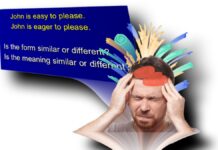In The Formalist Critics, Cleanth Brooks outlines and defends the principles of formalist literary criticism, a method that became central to the New Criticism movement of the mid-20th century. The essay, published in 1951, articulates the core ideas underlying formalism, particularly in its insistence that the text itself should be the primary focus of literary analysis. Brooks argues against approaches that rely on external factors like the author’s intention or the reader’s emotional responses, positioning the literary work as an autonomous object with intrinsic meaning.
Autonomy of the Text
Brooks emphasises that a literary work should be treated as a self-contained entity. He argues that external factors such as the author’s life, intentions, or historical context should not influence a critic’s interpretation. The text itself is the primary source of meaning, and everything necessary for interpretation is embedded within its form, language, and structure. This principle underlines the New Critical approach to literature, which focuses on close reading.
Unity and Coherence
One of Brooks’ significant points is the idea that a well-constructed literary work exhibits unity and coherence. The different parts of the text—its imagery, themes, symbols, and formal devices—work together harmoniously to produce a unified whole. According to this view, the critic’s role is to uncover the relationships between these elements and demonstrate how they contribute to the overall meaning of the text.
Tension, Irony, and Paradox
Brooks highlights that great literary works often involve tension, paradox, and irony, which are essential to understanding their complexity. Rather than resolving contradictions or tensions, Brooks asserts that these elements contribute to the richness and depth of the text. Paradox, in particular, is a device through which literature can convey truths that cannot be expressed straightforwardly. He believes that great literary works often contain internal contradictions that create complexity and depth, and formalist criticism seeks to explore these paradoxes rather than resolve them.
Rejection of the Intentional Fallacy
Brooks follows the argument made by his New Critical colleagues, W K Wimsatt and Monroe Beardsley, who coined the term Intentional Fallacy. He argues that attempting to interpret a work based on what the author might have intended to say is fallacious. The critic’s task is to analyse the text as it stands, without recourse to the author’s stated or presumed intentions.
Rejection of the Affective Fallacy
Similarly, Brooks rejects what Wimsatt and Beardsley call the Affective Fallacy, which refers to the error of interpreting or evaluating a work based on the emotional responses it provokes in the reader. Brooks argues that literary criticism should not be based on personal feelings or subjective reactions but on objective analysis of the text itself.
Against Extrinsic Evidence
Brooks criticises approaches that rely on extrinsic evidence, such as historical context, sociological data, or the biography of the author, as primary sources for interpretation. He claims that these methods often distract from the aesthetic and formal qualities of the work, reducing literature to mere reflections of external realities rather than considering it as an artistic creation with its own internal logic.
Literature as an Organic Whole
Brooks uses the metaphor of a living organism to describe literature, suggesting that a literary work functions as an interconnected, cohesive whole. According to this metaphor, a text is a cohesive whole, and altering or ignoring one part would disrupt the balance of the entire work. This organic view of literature reinforces his emphasis on the unity of a text, where meaning is generated through the dynamic interaction of all its components. The critic’s job is to analyse how these elements interact and contribute to the unity of the work.
Advocacy of Close Reading
One of Brooks’ major contributions is his advocacy for close reading, a method that has deeply influenced literary studies. His insistence on paying careful attention to the language, structure, and formal devices of a text encourages a deep engagement with literature. Brooks’ approach forces readers to look beyond superficial interpretations and examine how different elements of the text work together to create meaning.
Appreciation for Literary Complexity
Brooks’ focus on paradox, tension, and irony highlights the richness of literary texts. He demonstrates that great literature often involves contradictions that cannot be easily resolved, and this complexity adds depth to the reader’s experience. Brooks’ analysis suggests that literature has the power to express truths that are too complex to be conveyed directly or simply. His insistence on exploring these complexities adds nuance to critical interpretations.
Rejection of External Biases
Brooks’ argument against relying on the author’s biography, historical context, or reader responses encourages a more objective form of criticism. This rejection of the Intentional Fallacy and Affective Fallacy positions literature as something to be analysed on its own terms, not through the lens of external influences or subjective emotions. This approach opened up the possibility for more rigorous, text-based literary analysis and helped establish the autonomy of literature as a field of study.
Exclusion of Contextual Influences
While Brooks’ insistence on the autonomy of the text has merit, it can also be overly restrictive. By completely rejecting the importance of historical and cultural context, he overlooks the ways in which literature is often a response to its time. Many critics argue that understanding the social, political, and historical forces shaping a text can enhance rather than diminish its meaning.
Overemphasis on Unity
Brooks’ emphasis on organic unity can lead to overly reductive interpretations. Not all literary works aim for or achieve unity, and some deliberately embrace fragmentation, ambiguity, or dissonance. Postmodern texts, for example, often resist the kind of formal coherence that Brooks celebrates. Yet, they still hold significant aesthetic and intellectual value —his insistence on unity risks excluding such works from the critical conversation.
Dismissal of Reader Response
Brooks’ rejection of the Affective Fallacy assumes that a reader’s emotional response to a text is irrelevant to its meaning. However, this perspective disregards the ways in which literature often seeks to provoke strong emotional reactions as part of its impact. Reader-response critics, for example, argue that the interaction between the reader and the text is a crucial part of the meaning-making process, and Brooks’ refusal to engage with this aspect of literature limits the scope of his analysis.
Limits of Formalism in Addressing Ethical and Social Concerns
Formalism’s narrow focus on the internal elements of a text often ignores broader ethical, social, or political concerns. In the years since Brooks’ essay was published, literary criticism has expanded to include approaches that consider race, gender, class, and other social factors in literary analysis. These approaches argue that literature does not exist in a vacuum but engages with and reflects the world around it. By neglecting these aspects, formalism can sometimes appear disconnected from real-world issues.
The Formalist Critics by Cleanth Brooks remains a foundational text in the study of literary criticism, particularly within the tradition of New Criticism. Brooks’ focus on the autonomy of the text, the importance of formal unity, and the rejection of external evidence and emotional responses have shaped how literature is analysed in academia. His rigorous defence of close reading continues to be a valuable tool for critics.
However, the limitations of Brooks’ formalism —mainly its exclusion of historical context and reader response —have been challenged by subsequent critical movements. Modern critics have argued for more inclusive approaches that account for the social, political, and ethical dimensions of literature, suggesting that, while valuable, formalist criticism is just one of many ways to approach literary analysis.




























